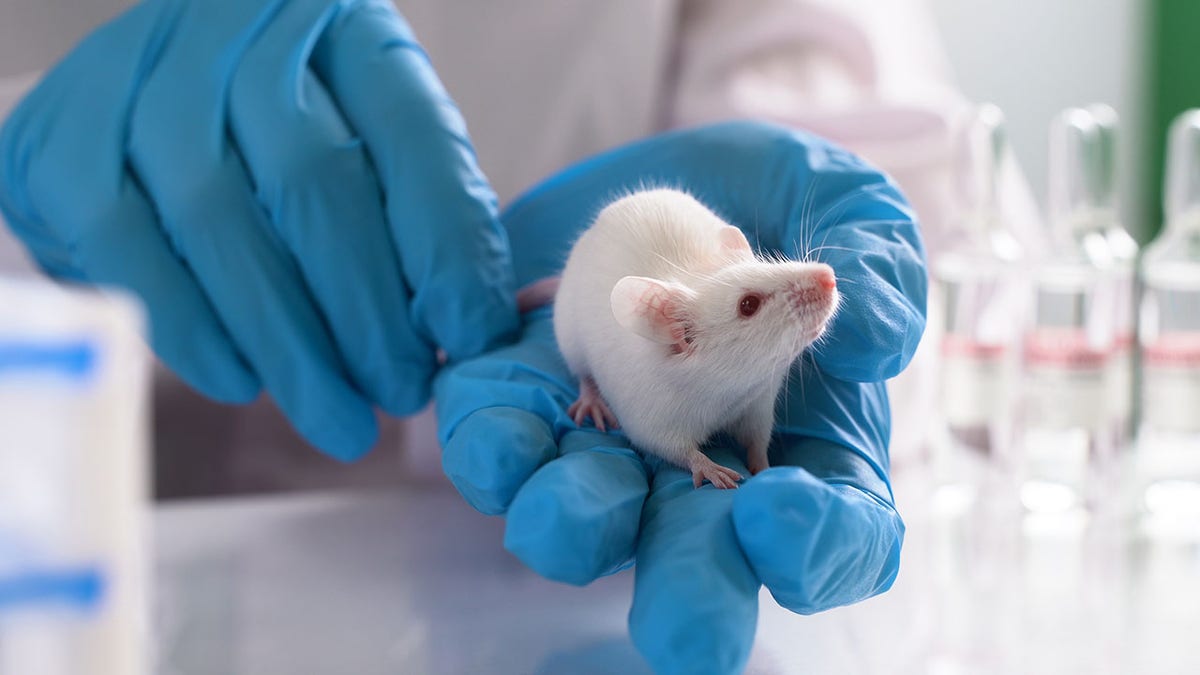Dietitian makes call to cancel the term 'obesity'
'The Big Saturday Show' panelists react to a university article labeling 'obesity' as a racist term.
New research conducted on animal subjects suggests that ketogenic diets help muscle stem cells survive stress, and scientists believe the same could be true for humans.
University researchers at Stanford Medicine conducted the dietary study on lab mice and published their findings in June to Cell Metabolism – a health science journal.
The study was implemented to investigate the effects high-fat, low-carb diets and short-term fasting have on muscle regeneration since there is little research on the topic.
Keto diets are a popular weight-loss tactic that people use by eating a high amount of healthy fats – typically broken down to 55% to 60% – while eating a low amount of carbohydrates – typically broken down to 5% to 10%. This puts bodies into a state called "ketosis," which prioritizes fat as a fuel source and leads to reduced body fat over time.
NATIONAL KETO DAY: HERE'S WHAT YOU SHOULD KNOW BEFORE TRYING THE DIET
"We show that ketosis, either endogenously produced during fasting or a ketogenic diet or exogenously administered, promotes a deep quiescent state in muscle stem cells (MuSCs)," Stanford’s researchers wrote.

The popular ketogenic diet (keto diet) is a low-carb, high-fat diet that puts your body into ketosis, the process in which your body burns fat for fuel, rather than carbohydrates. (iStock)
Fasting, on the other hand, appeared to slow "muscle repair both immediately after the conclusion of fasting as well as after multiple days of refeeding," according to study results.
Lab mice underwent fasting periods that lasted between one and two-and-a-half days. The mice were "less able" to regenerate new muscle in their hind legs in response to injury compared to a non-fasting control group.
The rodent test subjects had an observable "reduced regenerative capacity" that lasted up to three days after the mice were fed again. Their weight returned to "normal" a week after the fast ended.
WOMAN LOSES NEARLY 100 POUNDS AND TRANSFORMS LIFE AS A MODEL, SCHOLAR
Muscle stem cells in these test mice were smaller in size and "divided more slowly" compared to mice that didn’t have their feedings interrupted.
The cells were found to be "more resilient" and "survived better" when transplanted and grown on a lab dish.

Researchers can examine stem cell activity under microscopes. (iStock)
Researchers tested the stems under "challenging conditions," which included nutrient deprivation, exposure to cell-damaging chemicals and radiation.
Many of the cells were successfully transplanted back into the lab mice. Non-fasting mice had a lower success rate.
HOW TO REVERSE YOUR BIOLOGICAL AGE AND FEEL YOUNGER WITHOUT SPENDING A FORTUNE
"Usually, most laboratory-grown muscle stem cells die when transplanted," said Thomas Rando, a professor of neurology and neurological sciences at Stanford University.
"But these cells are in a deep resting state we call ketone-induced deep quiescence that allows them to withstand many kinds of stress," he continued, in a university press release.
Muscle stem cells from fasted and non-fasted mice displayed "similar resilience" when treated with beta-hydroxybutyrate – a ketone body, which is a water-soluble molecule that’s responsible for ketogenesis that occurs when fatty acids are produced by the liver.

Lab mice are typically used in health and medical studies because they share genetic, biological and behavioral similarities to humans. (iStock)
The muscle stem cells from older mice were treated with ketone bodies for one week, but their cells "grew more poorly in the laboratory" when compared to their younger counterparts. However, these muscle stem cells were able to survive just as well.
CLICK HERE TO GET THE FOX NEWS APP
Rando said in a statement that cells evolved to survive times of abundance and deprivation, which includes access to food.
"Ketone bodies arise when the body uses fat for energy, but they also push stem cells into a quiescent state that protects them during deprivation," he said. "In this state, they are protected from environmental stress, but they are also less able to regenerate damaged tissue."
Stanford University’s news release about the study said the results are intriguing, but it needs to be researched more.

Muscles are fibrous tissue that have the ability to contract, move and hold positions of body parts. (iStock)
The university also said the study’s findings might give clues about the effect aging has on a body’s ability to regenerate and repair damaged tissue.
FOLLOW US ON FACEBOOK FOR MORE FOX LIFESTYLE NEWS
"As we age, we experience slower and less complete healing of our tissues," said Rando. "We wanted to understand what controls that regenerative ability and how fasting impacts this process. We found that fasting induces resilience in muscle stem cells so that they survive during deprivation and are available to repair muscle when nutrients are again available."









































